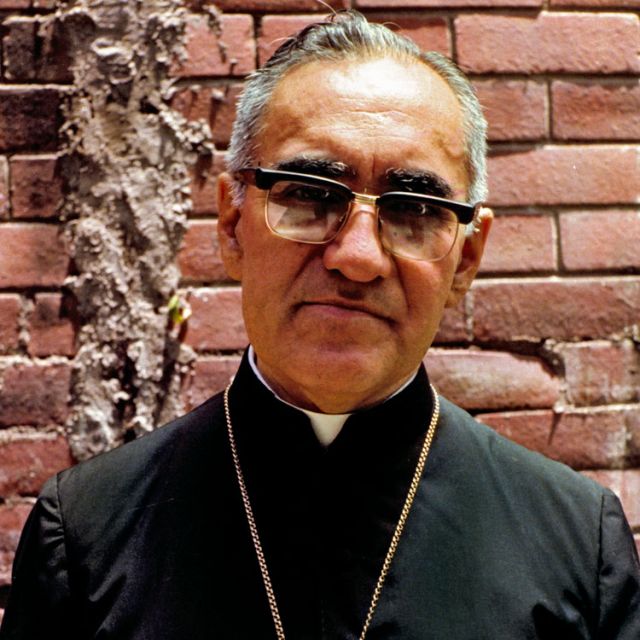Paglia, who has been the postulator of Romero's cause for years, made the announcement in a homily April 20, just a few hours after meeting with Pope Francis.
The Italian archbishop, who was preaching at a Mass in the Italian city Molfetta to mark the 20th anniversary of the death of the diocese's Bishop Antonio Bello — widely known by the diminutive Don Tonino — said, "Today, the anniversary of the death of Don Tonino, the cause for the beatification of Archbishop Romero was unblocked."
The archbishop gave no more details, and his office said April 22 that no more would be said until there is something "concrete" to report.
In his homily, Paglia said, "Martyrs help us live, help us understand there is more joy in giving than in receiving. This is why we need to preserve their memories."
He added that he hoped Archbishop Romero and Bishop Bello — known for his care of the poor and his commitment to peace — could be beatified together "because Jesus always sent the apostles out two by two."
Bishop Bello died in 1993; the Vatican approved the opening of his sainthood cause in 2007.
Archbishop Romero was shot March 24, 1980, as he celebrated Mass. The Congregation for Saints' Causes authorized the opening of his cause in 1993. Often the Congregation for the Doctrine of the Faith is asked to review the writings of sainthood candidates to ensure they are free of doctrinal error; many people working for Archbishop Romero's cause described the review as "blocked" in the congregation from 2000 to 2005.
One of those supporters is Roberto Morozzo della Rocca, a professor of contemporary history in Rome, and author of Primero Dios: Vita di Oscar A. Romero (God First: The Life of Oscar A. Romero).
He said Archbishop Romero's "enemies claimed there were theological errors" in his writings and sermons. "This took years of work to clear up," della Rocca told Catholic News Service April 22.
The next step in the process is a formal papal declaration that Archbishop Romero died a martyr — that he was killed because of his faith. Opponents of his cause have claimed his assassination was politically motivated. The papal decree would follow a recommendation from the cardinals who are members of the Congregation for Saints' Causes; they vote on decrees after reviews by separate panels of theologians and historians.
A miracle is not needed for the beatification of a martyr.


